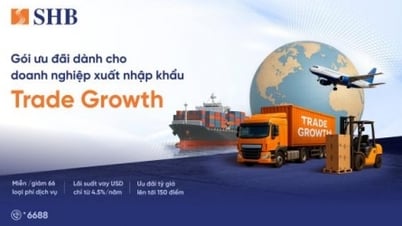In the context of strong economic integration and digital transformation, reforming the tax system for small and medium-sized businesses is an inevitable requirement to improve the efficiency of state management, increase budget revenue, and at the same time create a fair competitive environment among economic sectors.
Many countries around the world have taken remarkable steps towards building a simpler, more transparent and fairer tax system for the informal economic sector.
India
India is one of the typical countries in tax reform efforts for the informal economic sector, especially small and micro businesses. With millions of unregistered businesses operating without direct management by the State, India's tax system has been inefficient and suffered from large revenue losses for decades. However, since 2017, when the country officially applied the goods and services tax (GST) system, an important turning point has been established, creating a foundation for more effective tax management for business households.

One of the highlights of India’s reforms is the establishment of a clear turnover threshold for tax classification, which reduces the filing burden for micro-entities. Specifically, households with an annual turnover of less than INR 4 million are given the option of applying for a “Composition Scheme”, which allows them to pay tax at a lower rate and with a much simpler filing process than regular businesses. This approach is both convenient for taxpayers and broadens the tax base in a gentle, non-shocking way.
In addition to tax and administrative reforms, the Indian government has also focused on encouraging household businesses to register formally through the Udyog Aadhaar initiative – a form of business identification number for households with a simple online procedure. After registration, these households have access to preferential capital, digital accounting services and basic financial management training. Thanks to the combination of support and transparency requirements, the number of households registering formally has increased sharply in just a few years of implementation.
The Indian model suggests that tax reform for household businesses will be difficult to achieve if it focuses solely on strengthening sanctions. Instead, it should be accompanied by policies that simplify, support access to financial services, and create incentives for household businesses to voluntarily enter the formal sector.
South Africa
South Africa is one of the leading African countries in reforming its tax system to suit the characteristics of the informal economy, in which small-scale businesses account for a large proportion. With an economy deeply divided between urban and rural areas, and between large enterprises and small-scale home-based production, South Africa has faced many difficulties in ensuring fairness and efficiency in tax collection. In this situation, the government has implemented a series of reforms to simplify the tax system, while improving awareness and compliance capacity of the people.
One of the notable solutions in South Africa is the establishment of a special tax framework for small businesses, called the Small Business Tax. This model allows small businesses to pay taxes on their turnover and profits at preferential rates, reducing the administrative burden compared to large-scale enterprises. The application of a simple and transparent tax schedule not only helps businesses easily fulfill their tax obligations but also creates trust in the legal system, thereby increasing the rate of voluntary compliance.

However, the most prominent element of the South African model is the combination of tax reform and community financial education. Through training programs organized by the South African Revenue Service (SARS), people are given specific instructions on how to declare taxes, keep records and make financial plans appropriate to the scale of their business. Especially in rural areas where tax awareness is limited, the government has coordinated with social organizations to popularize financial knowledge in many visual and easy-to-understand forms.
The results show that after a period of synchronous application of both tax policies and support programs, the rate of business registration and tax payment of individual households in South Africa has improved significantly. Lessons from South Africa show that, to attract business households into the formal economic sector, not only preferential policies are needed but also need to be accompanied by specific education, communication and support services.
Chile
Chile is one of the South American countries that has made remarkable progress in tax reform for small businesses, especially the informal sector – which accounts for a large proportion of the national economy. Previously, like many other developing countries, Chile faced difficulties in controlling actual revenue from small businesses, due to lack of transparency, limited management capacity and widespread tax avoidance. However, through flexible reform policies, the country has gradually brought households into the formal sector in a convincing manner and with a clear roadmap.
One of the highlights of the Chilean model is the design of a transparent lump-sum tax system specifically for “formal microenterprises,” that is, households or individuals with small businesses that register and file. These households are taxed at a flat rate or a percentage of their revenue, depending on their sector of activity. This lump-sum tax system is made public for each type of business, making it easy for taxpayers to understand, predict, and comply with, while reducing the administrative burden on tax authorities.

Not only stopping at procedural reform, the Chilean government also implemented policies to support formalized business households through access to simple accounting technology, financial training and bank credit connections. In particular, Chile established a transformation roadmap within 3 to 5 years, creating conditions for households to gradually develop their scale, improve their management capacity and transform into micro-enterprises when qualified. This approach shows a flexible reform mindset, not imposing coercion but encouraging people to voluntarily participate in the tax system.
Lessons from Chile show that tax reform for household businesses should not be separated from policies supporting microeconomic development. Only by creating trust, reducing compliance costs and giving household businesses real development opportunities will the informal sector have real incentives to step into the light, contributing to the health of the national financial system and ensuring fairness in social contributions.
Source: https://khoahocdoisong.vn/cac-nuoc-cai-cach-thue-cho-ho-kinh-doanh-the-nao-post1555432.html























































































![[Infographic] In 2025, 47 products will achieve national OCOP](https://vphoto.vietnam.vn/thumb/402x226/vietnam/resource/IMAGE/2025/7/16/5d672398b0744db3ab920e05db8e5b7d)














Comment (0)